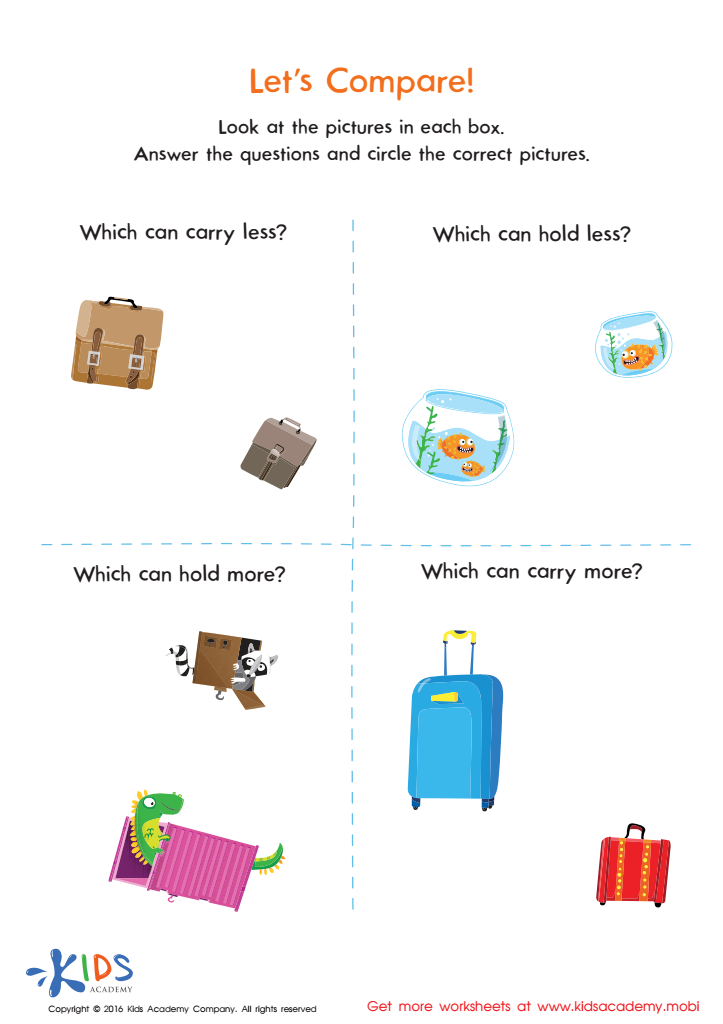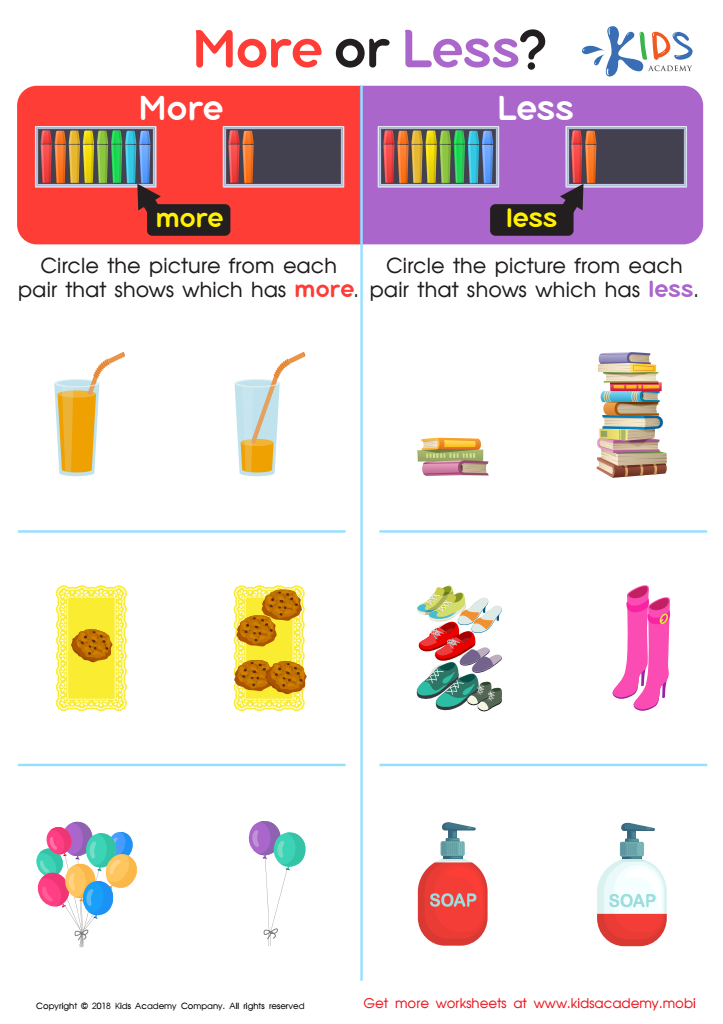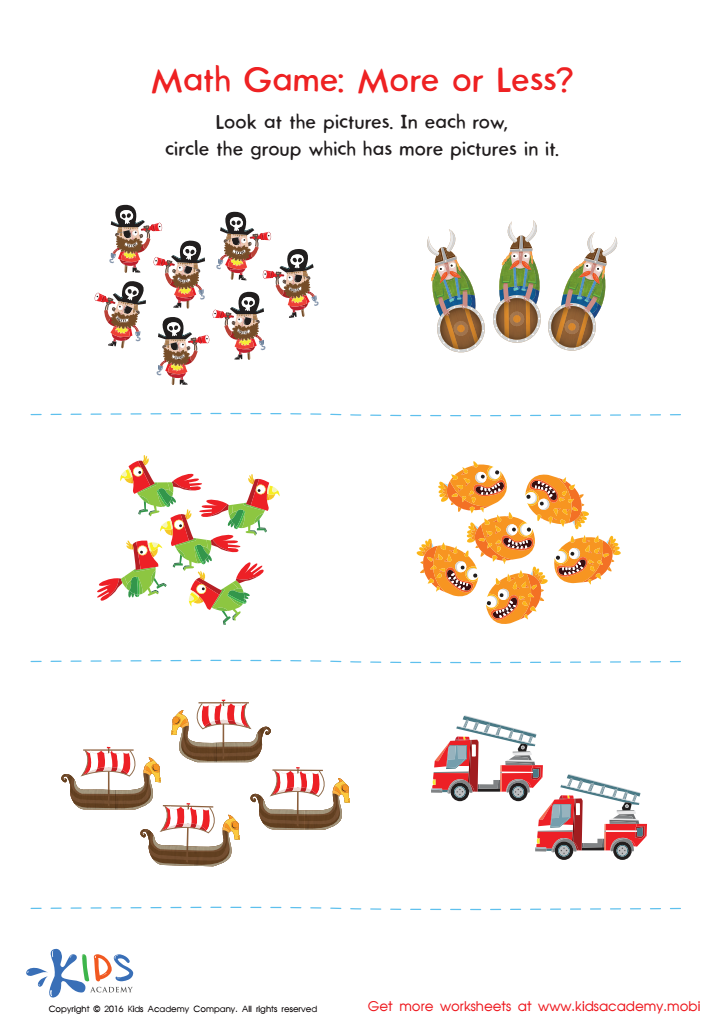Number comparison skills Math Worksheets for Ages 3-6
3 filtered results
-
From - To
Enhance your child's early math skills with our Number Comparison Skills Worksheets designed for ages 3-6. These engaging, printable activities focus on helping young learners understand the concept of more, less, and equal. By using vibrant illustrations and interactive exercises, children will develop essential skills in comparing quantities in a fun and rewarding way. Our worksheets cater to various learning styles, ensuring that every child can grasp these foundational math concepts at their own pace. Perfect for parents and educators, these resources make learning math enjoyable while preparing kids for future academic success. Start your child's mathematical journey today!


Let's Compare Worksheet: Big or Small


More or Less? Worksheet


More or Less Worksheet
Number comparison skills are fundamental for children ages 3-6, as they lay the groundwork for all future mathematics learning. During this developmental stage, children are naturally curious and eager to explore their environment, including numbers. Understanding number comparison helps children grasp essential concepts such as greater than, less than, and equal to, fostering their ability to make sense of quantities and numerical relationships.
Parents and teachers should care because these skills enhance cognitive development and critical thinking. Mastering number comparison aids in problem-solving, allowing children to analyze situations, make informed decisions, and develop reasoning skills. Early number comparisons promote mathematical fluency and confidence, which are crucial as children progress through their education.
Moreover, these skills support other areas of learning, including literacy and spatial reasoning, as they require children to engage with patterns and logical thinking. Early intervention and support in developing number comparison skills can significantly benefit a child’s academic trajectory, improving both performance and engagement in math.
Incorporating playful activities such as games, visual aids, and everyday experiences enhances number comparison skills. When parents and teachers prioritize this aspect of early education, they are genuinely investing in a child's lifelong learning journey.
 Assign to My Students
Assign to My Students





















